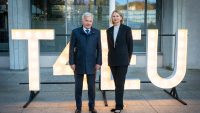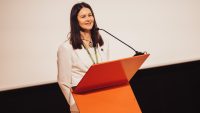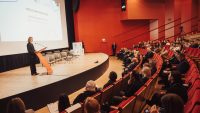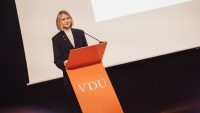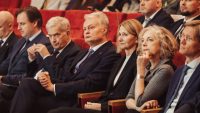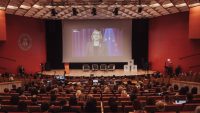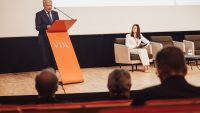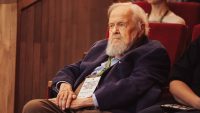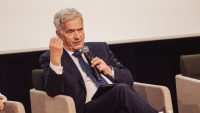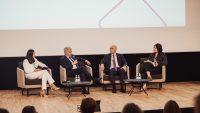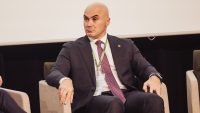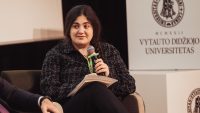International Conference Inspired Discussions of Europe’s Resilience: Universities are Crucial in Uncertain Times
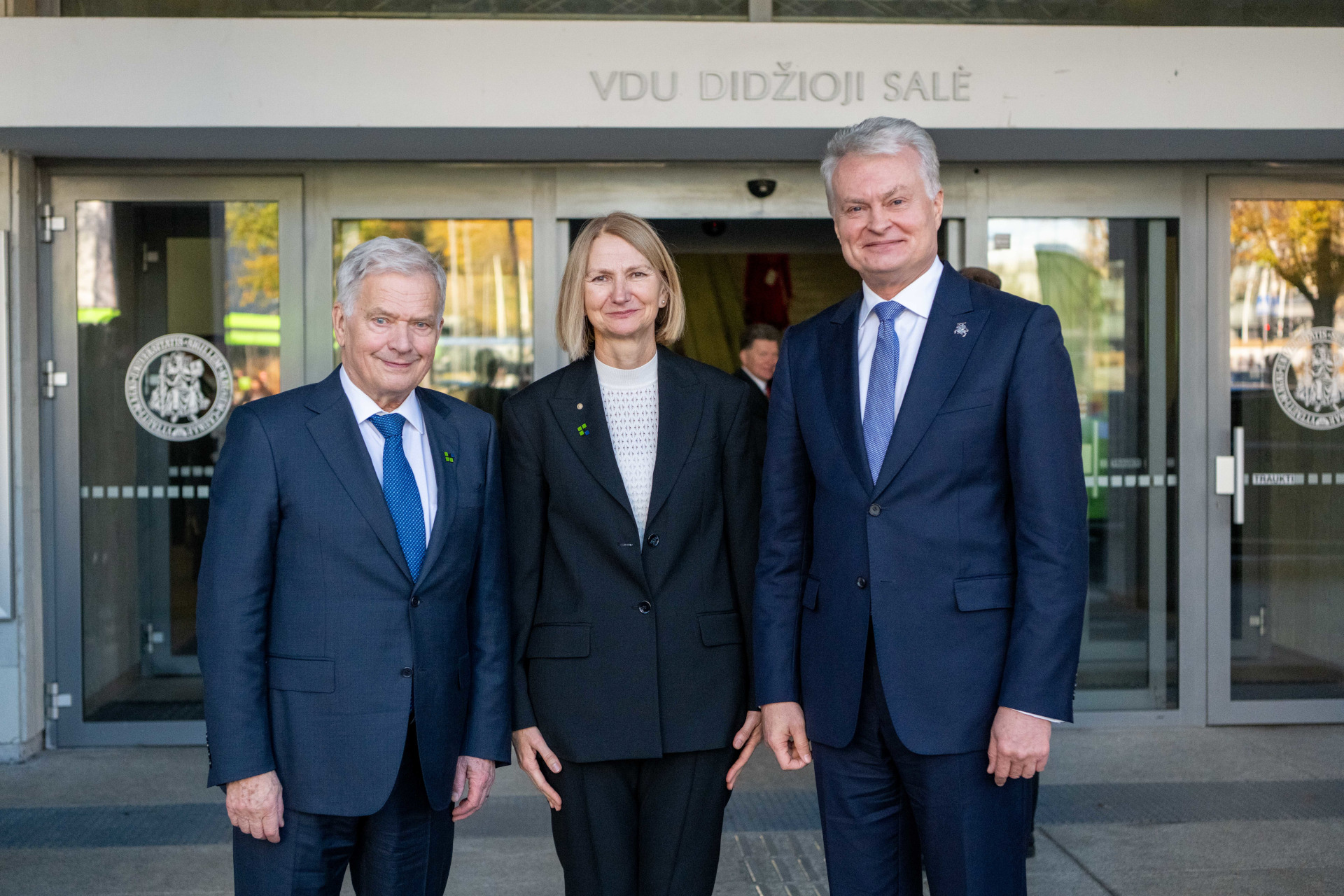
Photo by the Office of the President of the Republic of Lithuania / Robertas Dačkus
“The defining task today is to make sure that we are able to provide security to Europeans by being prepared for all risks, and that scale of risk is huge,” states former President of Finland Sauli Niinistö, the special adviser to the President of the European Commission, in an EU report he prepared on strengthening Europe’s civil and military preparedness. On 21 October, Niinistö delivered the keynote address at Vytautas Magnus University (VMU) in Lithuania during Strategic Policy Conference “Universities Shaping the Future: Building Resilient Societies through Innovation and Global Impact”, which was devoted to the importance of resilience in the modern world and marked the conclusion of VMU’s presidency of the Transform4Europe Alliance.
Niinistö was the twelfth President of Finland, serving two terms and becoming one of Europe’s most prominent heads of state: under his leadership, Finland fundamentally changed its security policy and joined NATO, ending a long era of military non-alignment. “Europe must wake up. We do not need investments in military production solely to provide necessary assistance. It is needed as a means to convince that Europe is strong: strong not to wage wars but to secure peace,” Niinistö said as president in 2024.
After becoming special adviser to the European Commission’s President Ursula von der Leyen, Niinistö prepared the report “Safer Together: Strengthening Europe’s Civilian and Military Preparedness and Readiness.” The document assesses the complex challenges facing the European Union and its member states today and gives recommendations on how to boost EU civil and military preparedness and readiness for future crises. The report covers both traditional defence and newer cyber-security and hybrid threats, and includes Niinistö’s recommendation that at least 20 percent of the entire EU budget should be allocated to security and crisis preparedness.
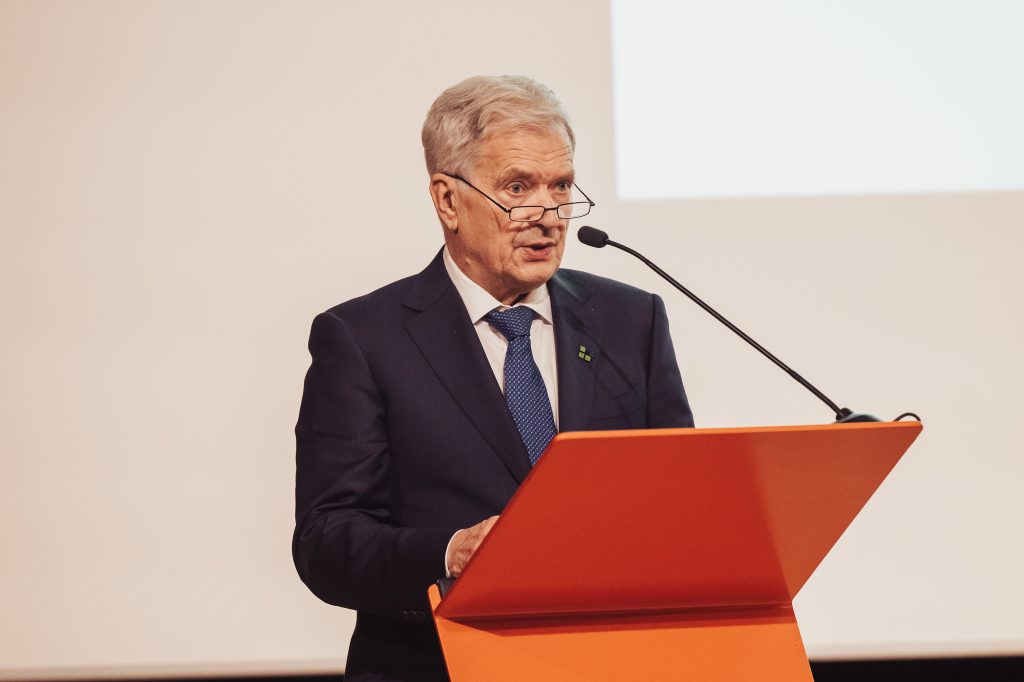
Former President of Finland Sauli Niinistö, the special adviser to the President of the European Commission
Resilience in an Era of Global Crises
On 21 October, Sauli Niinistö visited Kaunas to deliver the keynote at the international conference “Strategic Policy Conference “Universities Shaping the Future: Building Resilient Societies through Innovation and Global Impact”, organised by VMU and the Transform4Europe (T4EU) Alliance. The President of the Republic of Lithuania, Gitanas Nausėda, greeted the participants, emphasizing in his speech that in today’s new reality, defence is no longer solely the responsibility of the armed forces or security services: robust hybrid resilience must encompass the whole of society, including universities.
“Never before has critical thinking, built on a solid foundation of knowledge, been as important as it is today. And this means that modern education, especially our universities, plays a crucial role in preparing young adults to live in an increasingly uncertain and complex reality. The great struggle for our minds and hearts, and for the future of democracy, has only just begun. Yet standing here, in the Great Hall of Vytautas Magnus University, I have no doubt that truth grounded in moral values will always find its way, thanks to our educators, innovators, and all those who care”, the President of Lithuania said.
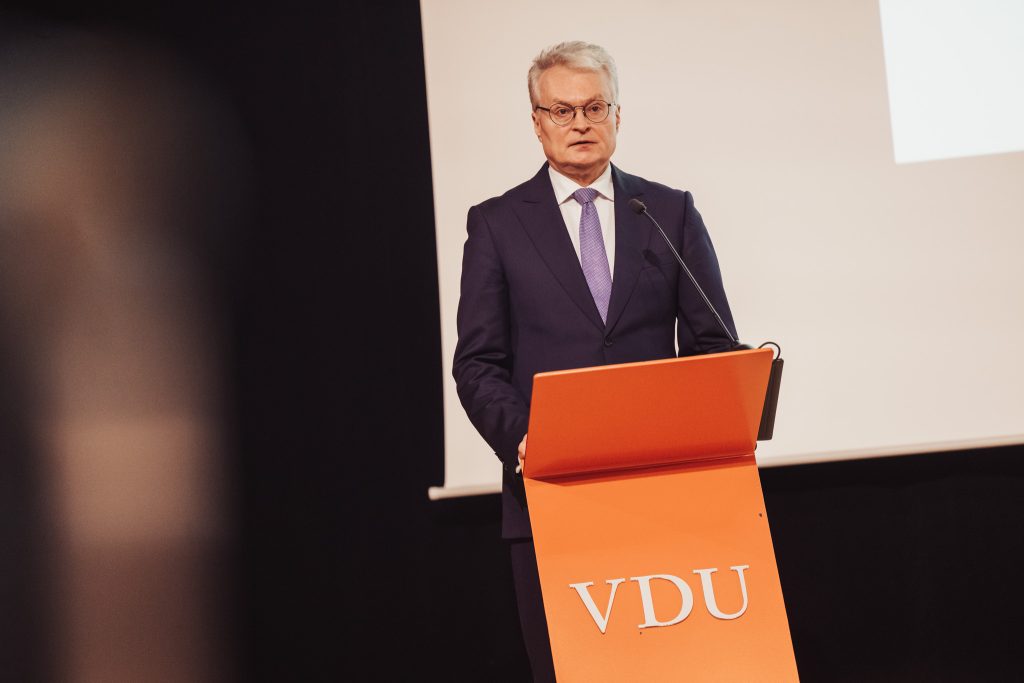
President of the Republic of Lithuania Gitanas Nausėda
The conference focused on resilience and its importance today amid growing uncertainty and global crises. Drawing on his long experience, Sauli Niinistö shared insights on Europe’s resilience within a shifting global order.
“We have to prepare, to be ready, not because we are afraid of the future but because we have responsibility for the future. Security and peace is the foundation of everything: for individuals, families in their life, communities. You can‘t plan the future without security, you have difficulties maintaining your values without security. That‘s why this kind of mindset is needed”, the former president of Finland said in his keynote, also discussing hybrid threats and the role of academic community in contributing to national security.
The conference brought together not only academic leaders, experts, and students from the T4EU and other European University alliances, but also high-level European and Lithuanian political figures, global partners, and key stakeholders. Together, they engaged in discussions on resilience from multiple perspectives, including the global and European transformation of democracies, societies, and technologies. Based on the expertise and insights generated during the conference, a Policy Paper on Resilience Competency will be finalized and shared.
Universities as Drivers of Change and Innovation
The conference addressed the role of universities in democracies and in conflict-affected societies, individual resilience in an unpredictable world, the importance of innovation and talent for Europe’s strategic future, and higher education’s contribution to society.
“Although for nearly a millennium universities were the primary centres of intellectual thought and visionary leadership, regrettably their authority and role in society have diminished significantly, especially in Europe. The hope is that the European Universities Initiative, which currently unites 65 alliances, will strengthen Europe’s higher-education institutions and their role in nurturing the continent’s values and identity, while boosting global competitiveness, accelerating technological progress and innovation, and strengthening overall societal resilience,” explains VMU Rector Prof. Dr. Ineta Dabašinskienė.
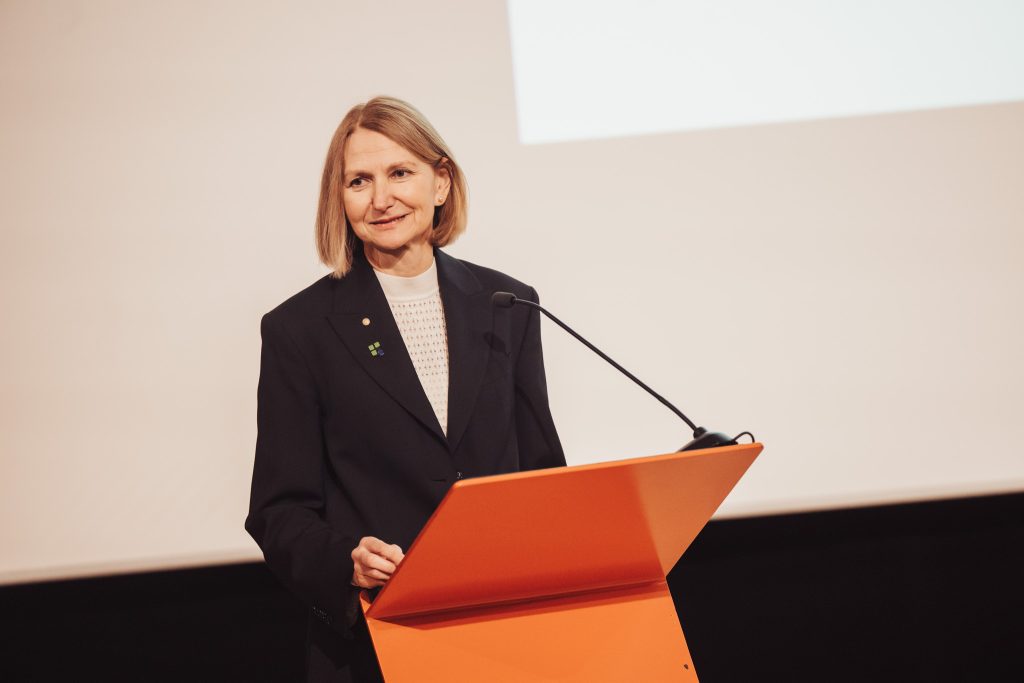
VMU Rector Prof. Dr. Ineta Dabašinskienė
In the rector’s words, only by standing together as nations, institutions, and individuals, can people protect what truly defines Europe: the freedom, dignity, and capacity to create a future built on trust, solidarity, and shared responsibility.
“The European university alliances such as Transform4Europe were created to embody this very vision: to unite universities as drivers of change and innovation, to strengthen Europe‘s identity, and to foster culture of innovation, creativity, and social responsibility that serves our societies”, VMU Rector Prof. Dr. Dabašinskienė said in her welcoming speech.
The European Universities initiative, which brings together 65 alliances, was created to strengthen Europe’s higher education institutions and their role in fostering European identity, competitiveness, technological progress, and overall societal resilience.
The Transform4Europe European University Alliance unites ten partner universities in Lithuania, Poland, Bulgaria, Estonia, Portugal, Slovenia, France, Spain, Italy, and Germany, along with one associate partner in Ukraine. Vytautas Magnus University represents Lithuania in the alliance. During the conference, the Transform4Europe presidency was handed over to Sofia University St. Kliment Ohridski in Bulgaria.

